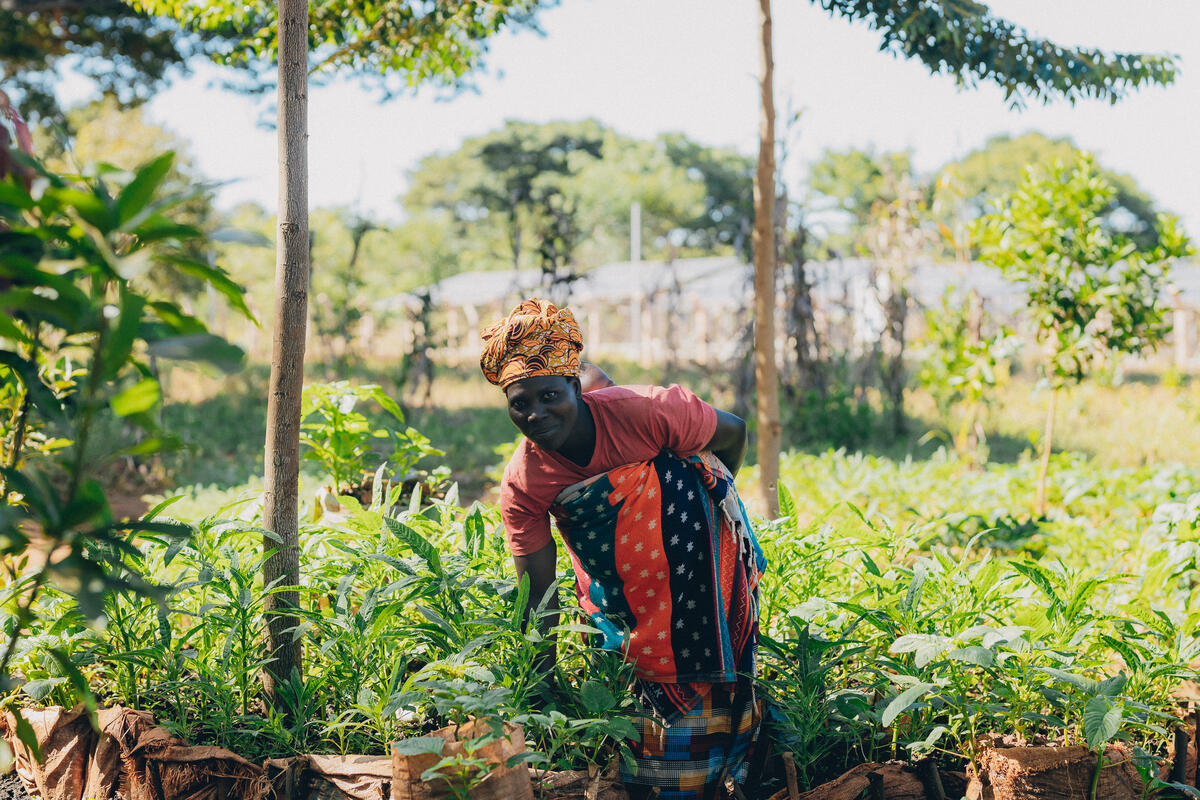UNHCR concerned at climate change impacts in South Sudan
UNHCR concerned at climate change impacts in South Sudan

Climate change-driven flooding and drought are threatening to aggravate an already precarious situation in vulnerable parts of South Sudan, UNHCR, the UN Refugee Agency warned today, stating that concerted action is needed to mitigate its worst impacts.
During a five-day visit that ended on Friday, Andrew Harper, UNHCR’s Special Advisor on Climate Action, visited flood affected areas of South Sudan including Old Fangak, Malakal and Jamjang, and Yida, which is in the grip of drought.
“In 2021, South Sudan has already witnessed the worst flooding on record. Such events are set to become the norm, not the exception in the future,” Harper said, stressing the underlying vulnerabilities the country faces.
South Sudan is the largest source of refugees in Africa, numbering more than 2.3 million, and hosts one of the world’s largest peacekeeping operations. It recently witnessed the highest flood levels in living memory in some parts of the country, while dealing with drought in others, amid intermittent conflict.
Access to some of the most vulnerable populations is a major impediment for humanitarian interventions. Poor or no road infrastructure networks make it hard for external support to reach remote locations, such as Old Fangak, where the former airstrip is completely submerged and currently unusable for landing
Despite multiple challenges, its people have been extremely generous to those displaced by violence or extreme weather, often sharing the meagre resources they have – however, they need sustained support to avert devastating consequences, he cautioned.
“If we do not step up our support for the people of South Sudan, climate change and environmental degradation, coupled with ongoing insecurity, mean that resources will further shrink, leaving people with no means to survive,” Harper said.
“We know that if we do nothing, the cost will be high. By this I mean the devastating human consequence, but also the actual price tag for the international community. This is why it is so important to invest in preparedness, early warning and adaptation,” he added.
During his mission to Yida, Jamjang, Bentiu, Malakal and Old Fangak, Harper witnessed what he called “remarkable islands of stability and peace.” “We cannot take these for granted and as a priority need to invest in peaceful coexistence and environmental protection, which are often directly linked.”
“If one thing is clear, then that none of us can tackle the impacts of climate change on their own. This is why I am calling on the international community to come together and work towards a South Sudan where people can return home in safety and dignity. Protected from persecution and conflict, but also from extreme weather.”
Following the example of the generous people of South Sudan, who have already given so much, Harper said development actors and donors needed to step up and invest in infrastructure, work on governance and climate change adaptation.
“I can assure you that UNHCR will continue to support refugees and the people of South Sudan and is ready to do even more,” he said.
For More Information Please Contact:
- Tim Gaynor I [email protected]
- Mary-Sanyu Osire | +211 90 211 01 2118 | [email protected]
- Gift Friday Noah | +211 922 654219 | [email protected]









